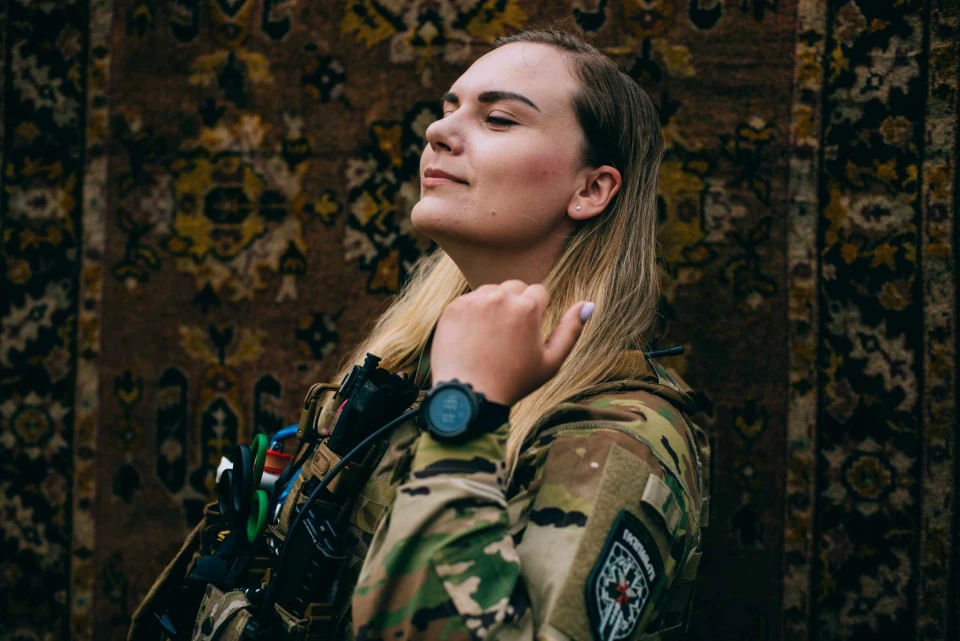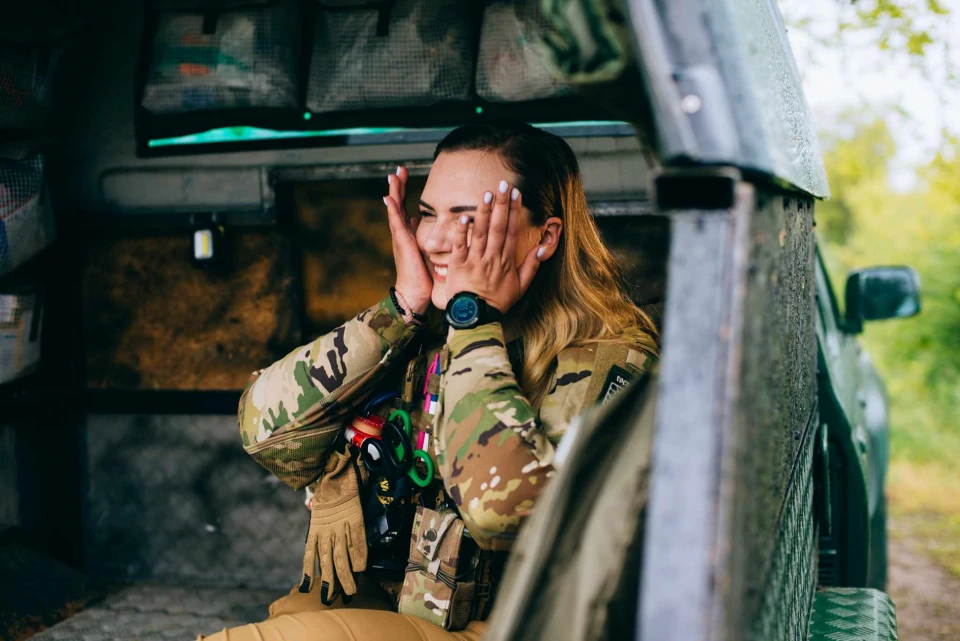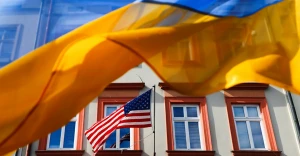
“War is now resonant, with faces of those I know well.” Interview with Hospitaller Iryna Tsybukh, killed by Russia
On May 29, Iryna Tsybukh, a combat medic with the Hospitallers volunteer battalion, was killed during a rotation in the Kharkiv direction. Espreso expresses its condolences to the family, friends, brothers and sisters of the defender and publishes an interview she gave last year in the program War and Volunteers to Khrystyna Parubiy
“The majority of people in Donbas do not want the Russian military”
In an interview with Espreso TV, Iryna Tsybukh described how the Russian military come to the homes of locals with weapons and demand food. People call volunteers, unsure of what to do.
“Not far from Avdiivka, there is a village that is already occupied. I know almost all the people there, we were developing a media class there. One of the villages was completely destroyed by Russian artillery. Unfortunately, they managed to successfully carry out this operation. You have to understand that specific Russians are doing this. And after that they came to people to ask for pickled foods. Not even asking, but demanding food.”
Iryna Tsybukh notes that people are desperate and do not know how to deal with the occupiers.
“One teacher wrote to me about this story. She said, ‘Ira, we understand that this food is the last thing we will eat here. We know perfectly well who did it, who shelled us.’ The village was razed to the ground, only cellars remained. They come with weapons, and these people are forced to give food to the ‘protectors’ who have destroyed their entire lives. It seems to me that most people in Donbas have already realized who they should side with. They don't want the Russian military, they are asking us to be there for them.”

Photo: photo from the personal archive of Iryna Tsybukh
“The war is no longer ideological”
“The war is no longer ideological, but is turning into a very concrete war with the faces of people I know well.” This is what Iryna Tsybukh said in the interview.
“I'm used to coming to peaceful Avdiivka, where I have many friends. I would not want the city to be under occupation. In fact, everyone there has long since decided who they side with, there are many wonderful pro-Ukrainian people who can’t stand Russia.”
According to the volunteer, the war has changed a lot.
“The situation is very acute now. My medical group works with the marines who perform special tasks, assault, clean up and respond to the breakthrough of Russian troops. The war is no longer an ideological one for me, but becomes very concrete and looks like the faces of the people I know well,” said Iryna.
NATO will learn from Ukrainian medics
Iryna Tsybukh noted the level of the Hospitallers battalion. She believes that Ukrainian paramedics are gaining invaluable experience.
“The training facilities available to the Hospitallers are probably one of the best in Ukraine. I understand that the experience we gain in the war, as paramedics and our instructors, is worthy of being the best in the world. NATO will learn from our medics, because we can teach how to provide first aid on the battlefield and in other situations. The battalion has specialists from other armies of the world who come to see how we work,” said Iryna.
She noted that the Hospitaller medics cover three stages of assistance: evacuation, medical evacuation and stabilization of the wounded.
“I evacuate the wounded directly from the battlefield. We pick up and stabilize people in a pickup truck that can drive in very difficult areas of the front. The second stage is medical evacuation. Hospitallers also cover the third stage. Our surgeons deploy stabilization stations where they can provide full assistance at the stage of stabilization of the wounded. In other words, we cover all the stages so that a person can survive. It is very decent and organized at a high level. So far, I have not seen a similar organization in the Ukrainian Armed Forces or other armies.”
Conversation with Iryna Tsybukh becomes part of Khrystyna Parubiy's book about women in war
Iryna Tsybukh is a paramedic with the Hospitaller Medical Battalion. At the front, she and her crew evacuate the wounded from the battlefield. She started saving the defenders in 2014. At first, she went to the front as a volunteer, and later became a paramedic.
“Previously, my idea of providing assistance on the battlefield was just to stop the bleeding and ensure airway patency. If there was an inclusive sticker, I would stick it on a lung wound and that was it. I didn't know anything else,” Iryna admits. “Luckily, when I joined the battalion, I realized that I knew nothing about tactical medicine and that I needed to study a lot and improve my knowledge.”

Photo: photo from Iryna Tsybukh's personal archiv
“I envisioned a presentation where I would wear a beautiful dress, heels or a nice suit”
The decision to work in the medical field had been lingering in her mind for a long time. And two years ago, Iryna confidently decided that combat medicine should become a part of life during the war.
For several years, Iryna combined war and civilian life. She is not a professional doctor. In between peaceful life and the frontline, she worked in the reform of the state broadcaster as a teacher of information broadcasting and media literacy. February 24 was supposed to be one of the most important days in Iryna's life. She had made a film about children in the villages of Donetsk and Luhansk regions and was supposed to present it. But Russian bullets interfered with her plans.
“I envisioned a presentation where I would wear a beautiful dress, heels, or a nice suit. The top managers of our country were supposed to attend this presentation to understand the importance of developing inclusion in our villages. The children I filmed in my movie expressed their need for good transportation to the district center so they can participate in hobby clubs. Many influential people responsible for improving the space and inclusion for these teenagers born in villages were expected to attend. These teenagers need a swimming pool, a shopping center, and opportunities to go to the movies. These are very basic stories,” the medic said about the project.
-
On May 29, Iryna Tsybukh was killed in the Kharkiv region during a rotation. Their car hit a mine, and Iryna “Cheka” Tsybukh died immediately, the driver survived.
- News













































